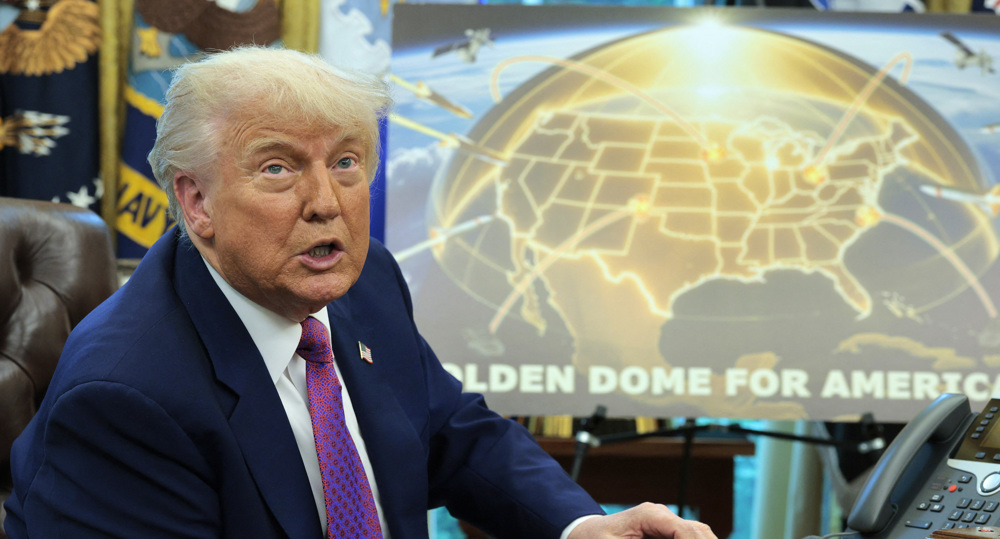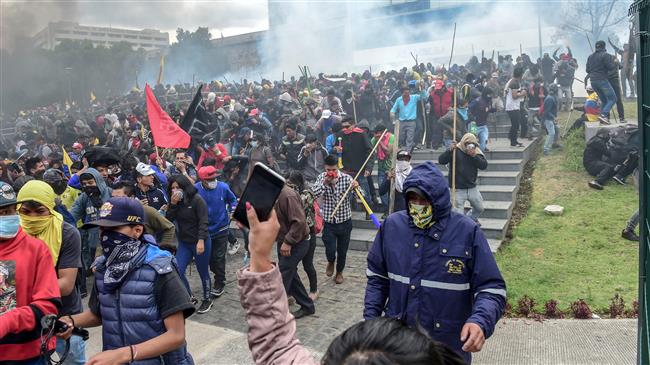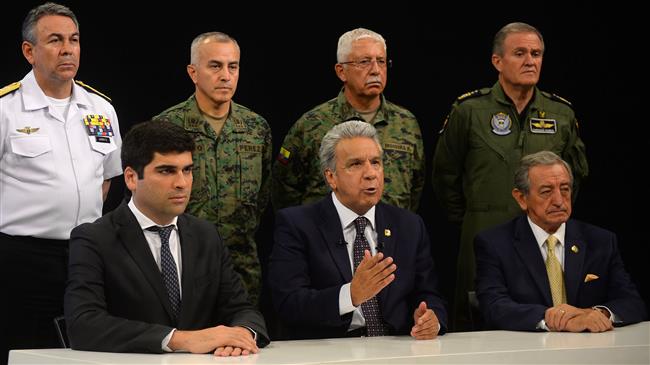Ecuador imposes curfew as protests intensify
Fierce clashes have erupted between police and protesters outside the parliament building in Ecuador’s capital, Quito, after almost one week of protests that prompted President Lenin Moreno to order a curfew and move the government to a coastal city.
Moreno ordered a curfew around government buildings on Tuesday after thousands of indigenous protesters flooded into Quito to protest his decision to end state fuel subsidies.
Police deployed armored vehicles and water cannons to the capital, which has been in chaos since Moreno announced the measure last week as part of an austerity plan required by the International Monetary Fund (IMF).
On Tuesday, protesters burst through security cordons to briefly enter the National Assembly. Police used tear gas to force them out of the building. The legislature was not sitting at the time.
Elsewhere in the capital, security forces fired tear gas to disperse masked and stick-wielding protesters, who were hurling stones and burning tires.
Authorities said 19 civilians and 43 police officers were injured in the clashes.
The president has said “under no circumstances” is he going to step down.
“I don’t see why I should (resign) if I’m making the right decisions,” he said after announcing a state of emergency on Tuesday.
He has also refused to reinstate the subsidies, which according to him would save the state 1.3 billion dollars a year.
Instead, he has blamed the chaos on his left-wing predecessor, Rafael Correa.
On Monday, and as protesters were converging on Quito, Moreno ordered the relocation of the government from the capital to the city of Guayaquil.
An umbrella organization of local Indigenous groups, the Confederation of Indigenous Nations in Ecuador (CONAIE), said its members would stay on the streets until Moreno retracted his decision to scrap the fuel subsidies. They would also join a general strike planned for Wednesday.
Jaime Vargas, the president of the federation, has said 20,000 protesters will be in the capital by Wednesday. He has also warned that military and police forces who enter indigenous settlements “will be detained and submitted to indigenous justice.”
The government says at least 680 people have been arrested. “There are groups bent on causing chaos and confrontation, endangering democratic order,” it said in a statement on Tuesday.
Indigenous-led protests have toppled three presidents in the South American country before.

Chile withdraws military attachés from Israel over Gaza genocide

Trump tells Canada to pay $61bn for 'Golden Dome' or join as '51st state' for free

Carney unveils new cabinet to redefine Canada's ties with US
Israeli minister calls for ‘full force' in Gaza as genocide continues
Iran calls on ECO states to formulate free trade regulations
Iran asks Austria to explain ‘false’ report on its nuclear program
Trump aims to exceed first term’s arms sales to Chinese Taipei: Report
Discover Iran: Gondishapur, the site of world's first university and cradle of medical science
Israeli court sentences two soldiers for declining return to war on Gaza
Leader’s aide slams Trump’s ‘fantasy’ of destroying Iran nuclear sites
Daesh claims first attack on former fellow fighters in Syria











 This makes it easy to access the Press TV website
This makes it easy to access the Press TV website